Understanding the Need for Emotional Coping Plans
Developing emotional coping plans is a critical element in supporting individuals facing substance use disorders and mental health challenges. These plans empower individuals to manage triggers, stress, and emotional fluctuations, laying a foundation for sustained recovery and improved well-being. This article explores comprehensive strategies and treatments designed to help craft effective emotional coping plans for the future, blending clinical insights with practical approaches.
Comprehensive Treatment Services: Addressing Mind, Body, and Social Needs
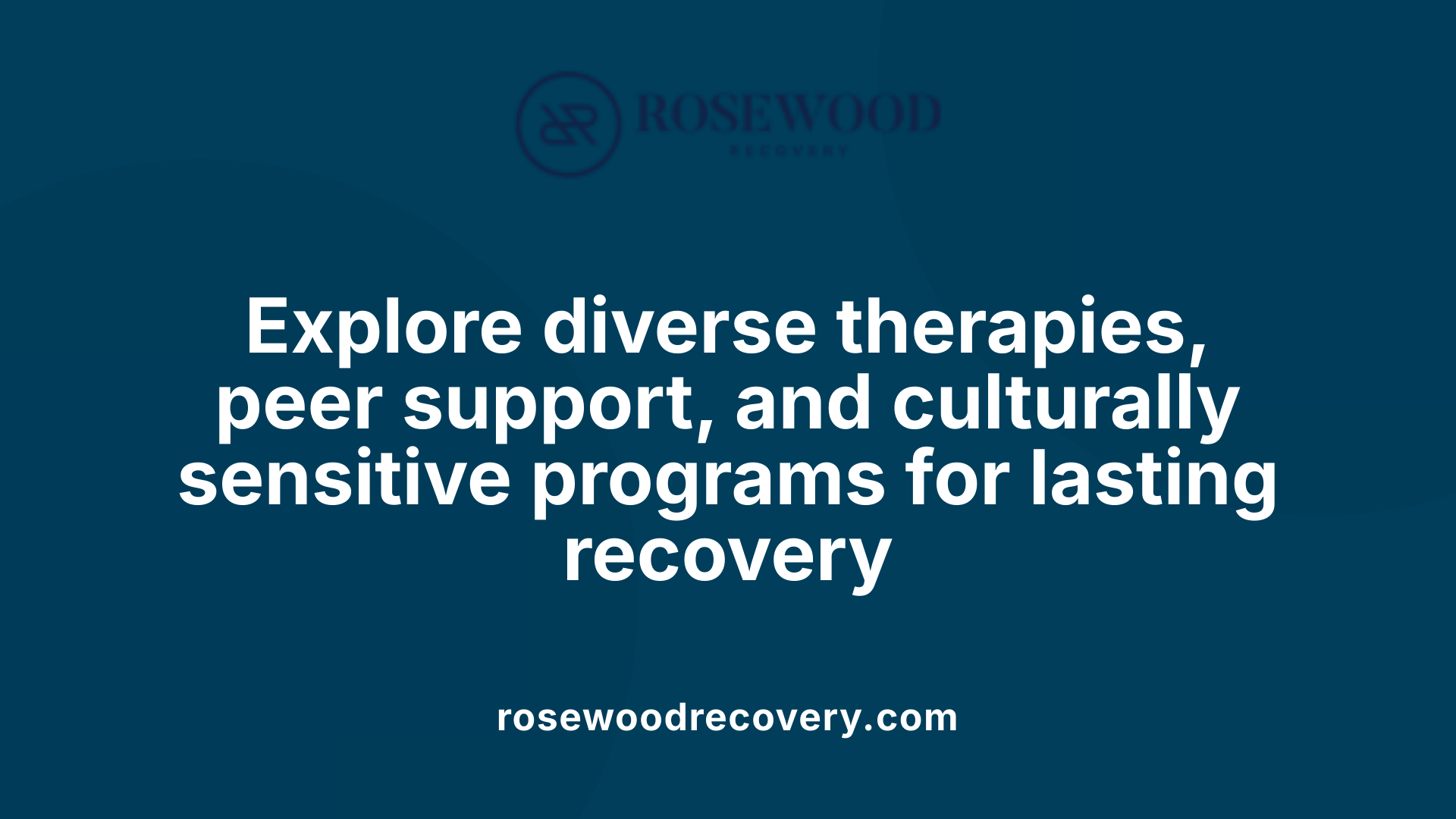
What types of comprehensive treatment services are available for substance abuse and mental health issues?
Comprehensive treatment services for substance abuse and mental health address all facets of recovery, including physical, psychological, and social aspects. These services typically begin with detoxification and medical management to safely handle withdrawal and stabilize the patient physically.
Following detox, a variety of behavioral therapies and counseling modalities are employed. These include cognitive behavioral therapy (CBT), dialectical behavior therapy (DBT), motivational interviewing, family therapy, and experiential therapies such as art and music therapy. These therapies help individuals understand triggers, manage symptoms, and improve interpersonal relationships.
Support networks and peer groups play a crucial role in sustaining recovery. Programs like Alcoholics Anonymous (AA), Narcotics Anonymous (NA), SMART Recovery, and culturally tailored interventions offer community support and reduce feelings of isolation. Incorporating family and social support enhances outcomes.
Harm reduction strategies are integrated within treatment to reduce risks associated with substance use, including overdose prevention programs, supervised consumption sites, and naloxone distribution to reverse opioid overdoses.
Accessibility and cultural considerations
Treatment accessibility is improved via nationwide government funding and initiatives that support outpatient and inpatient care, insurance coverage, and helpline services. Furthermore, culturally sensitive programming, especially for Indigenous and underserved populations, ensures treatment respects diverse backgrounds and needs.
By combining medical care, diverse therapies, peer support, harm reduction, and cultural sensitivity, comprehensive treatment services form the foundation for effective recovery from substance use and co-occurring mental health disorders.
Integrated Approaches to Treating Various Forms of Addiction

How do treatment programs address various forms of addiction comprehensively?
Treatment programs for addiction take a personalized and integrated approach combining medical, behavioral, and social methods. They start with thorough assessments to create individualized treatment plans that match the person's unique needs and circumstances.
Personalized assessment and treatment planning
Healthcare providers conduct comprehensive evaluations, considering substance use patterns, co-occurring mental health disorders, and social factors. This guides the selection of therapies and supports that maximize effectiveness.
Behavioral therapies including CBT, motivational interviewing, and contingency management
Evidence-based therapies such as cognitive-behavioral therapy (CBT) help individuals recognize and change negative thought patterns and behaviors. Motivational interviewing boosts internal motivation to change addictive behaviors, especially for those initially unready for recovery. Contingency management uses positive rewards to reinforce sobriety and treatment adherence.
Medication-assisted treatment options
Medications like methadone, buprenorphine, and naltrexone support recovery by reducing cravings and withdrawal symptoms for opioid and alcohol addictions. New developments include drugs that ease withdrawal insomnia and reduce cannabis-related highs without harmful effects.
Relapse prevention strategies
Programs teach coping skills such as mindfulness, stress management, and avoidance of triggers. Ongoing therapy and peer support groups also help maintain long-term recovery and manage lapses effectively.
Tailored care for special populations
Adolescents, minorities, and pregnant women receive specialized care that addresses cultural, developmental, and medical considerations. Young adult sober housing and family-based interventions further support specific needs.
Emphasis on emotional resilience and long-term coping skill development
Building emotional resilience is central, with strategies like journaling, social connection, and cognitive-behavioral methods helping individuals manage impulses and stress. Support services including outpatient programs, medication-assisted treatment, and crisis resources enhance sustained recovery.
Integrated addiction treatment programs combine these elements thoughtfully, recognizing addiction's complexity and fostering holistic healing and empowerment for diverse populations.
Understanding the Complex Relationship Between Mental Health and Addiction
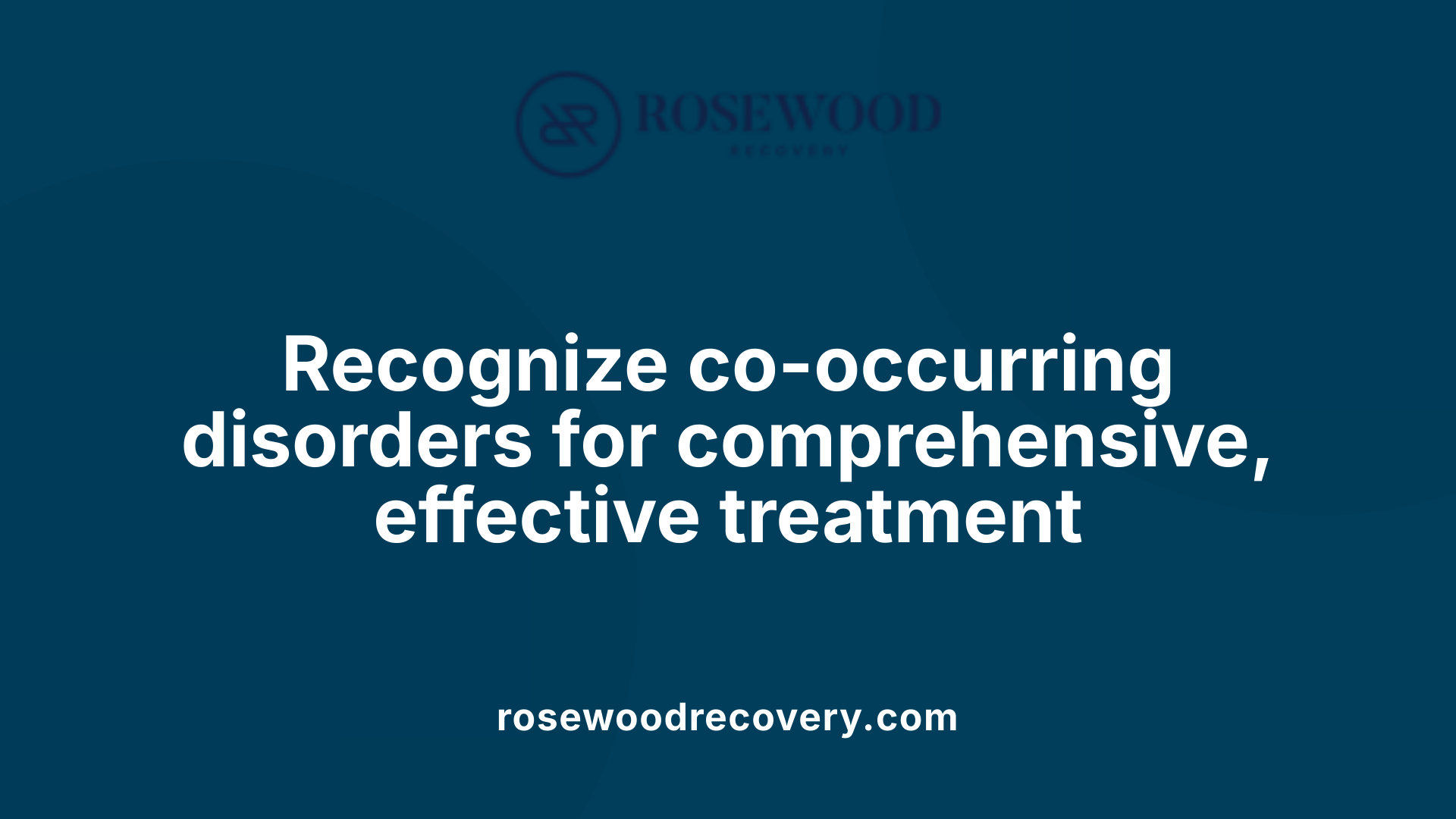
How Common Is the Co-occurrence of Substance Use and Mental Disorders?
Many individuals with substance use disorders (SUDs) also experience mental health conditions such as depression, anxiety, or bipolar disorder. This co-occurrence is widespread because these disorders are interconnected. People may use substances to self-medicate underlying mental health symptoms, while addiction itself can also trigger or worsen psychological issues.
What Factors Increase the Risk of Both Conditions?
Environmental and genetic factors play significant roles. Stressful experiences like trauma, especially in childhood, increase vulnerability. Genetic susceptibility also contributes, along with changes in brain chemistry caused by either mental health disorders or substance use. This complex interplay makes it difficult to isolate one cause.
How Does Addiction Affect Brain Chemistry and the Nervous System?
Addiction rewires the brain’s reward system, particularly involving dopamine, which regulates motivation and pleasure. This rewiring can lead to compulsive substance use despite harmful consequences. Additionally, addiction causes inflammation and neurological disruption that exacerbate mental health symptoms, creating a vicious cycle.
What Are the Psychological Effects Seen in Addiction?
Common psychological symptoms include anxiety—manifested as rapid heart rate, restlessness, and insomnia—and depression, characterized by hopelessness, emotional dysregulation, and lack of motivation. Emotional numbness and detachment often arise, which may lead to social isolation and difficulty feeling joy.
Why Is Accurate Diagnosis Important for Effective Treatment?
Because symptoms often overlap between substance use and mental health disorders, accurate diagnosis requires comprehensive assessments by trained providers. Integrated treatment models that address both issues simultaneously—using behavioral therapies, medications, and care management—are most effective for recovery.
Behavioral and Therapeutic Interventions Supporting Emotional Coping
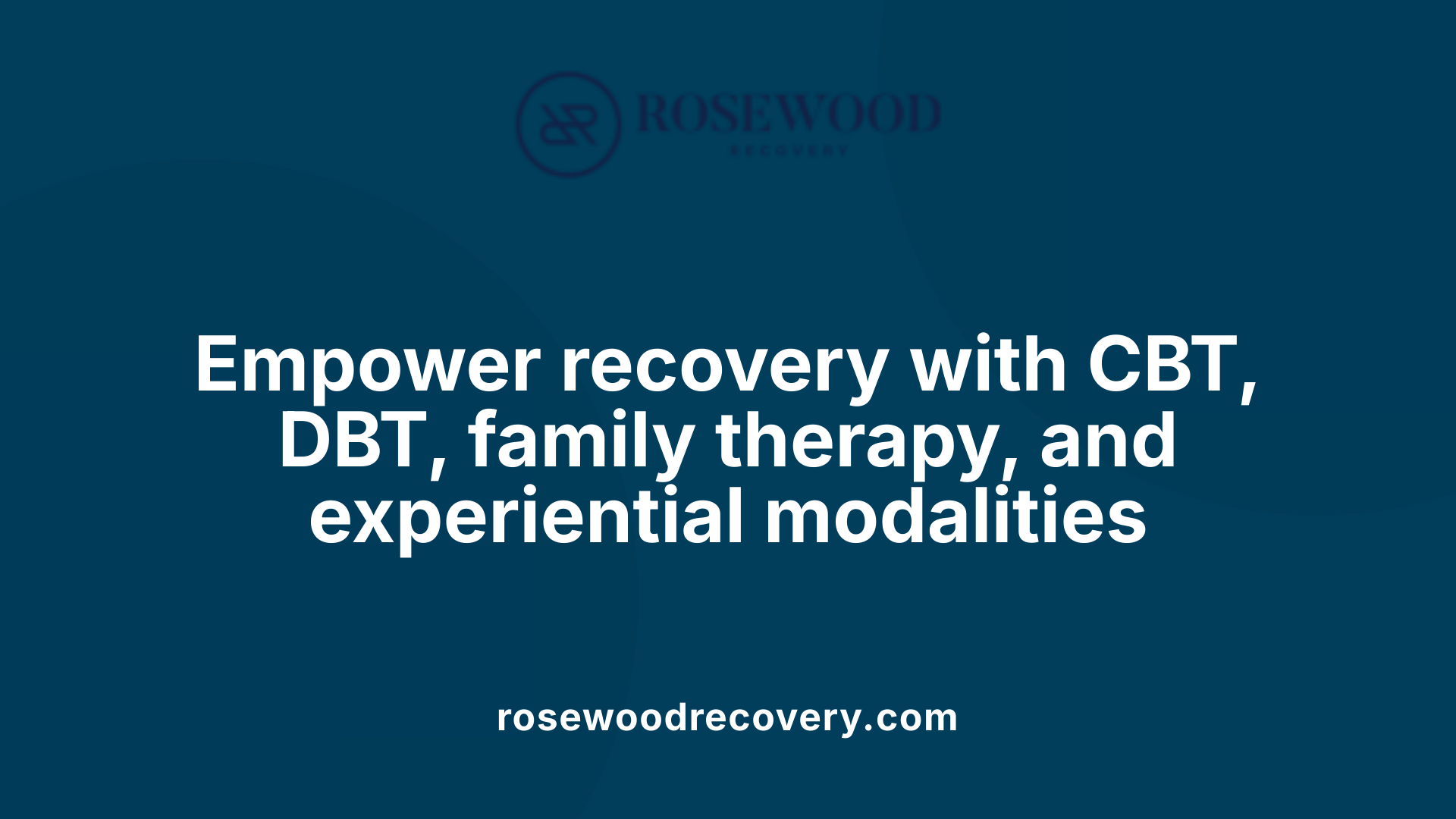
What are Cognitive Behavioral Therapy (CBT) and Dialectical Behavior Therapy (DBT)?
CBT is a structured, goal-oriented therapy aimed at reshaping negative thoughts and managing symptoms of addiction and mental health disorders. DBT, a form of CBT, emphasizes mindfulness, emotional regulation, distress tolerance, and interpersonal effectiveness, making it highly effective for people battling both addiction and mental health issues.
How do Motivational Interviewing and Psychodynamic Therapy assist in recovery?
Motivational interviewing is a patient-centered counseling style designed to boost intrinsic motivation in individuals who might be unmotivated to change their substance use behavior. Psychodynamic therapy helps patients uncover unconscious thoughts and unresolved conflicts that influence addictive behaviors and emotional struggles.
What role do Family-Based Interventions play?
Interventions like Multisystemic Therapy and Functional Family Therapy involve the family unit to improve dynamics and address environmental factors contributing to co-occurring disorders. This approach recognizes addiction as a disease affecting not just the individual but the wider family system.
How do Experiential Therapies provide emotional outlets?
Therapies such as art, music, equine, creative writing, adventure, play, and drama engage patients on an emotional level and facilitate expression through non-verbal modes. These are especially helpful for individuals who find verbal communication challenging.
What is Eye Movement Desensitization and Reprocessing (EMDR)?
EMDR is an evidence-based psychotherapy developed to treat trauma. Through an eight-phase approach, it helps patients process traumatic memories and develop positive beliefs about themselves and the future, contributing to emotional healing.
These behavioral and therapeutic interventions offer diverse and powerful tools for supporting emotional coping in individuals facing the dual challenges of substance use and mental health disorders. By incorporating these therapies, treatment can be more holistic and effective.
Medication-Assisted Treatment and Innovations to Aid Recovery
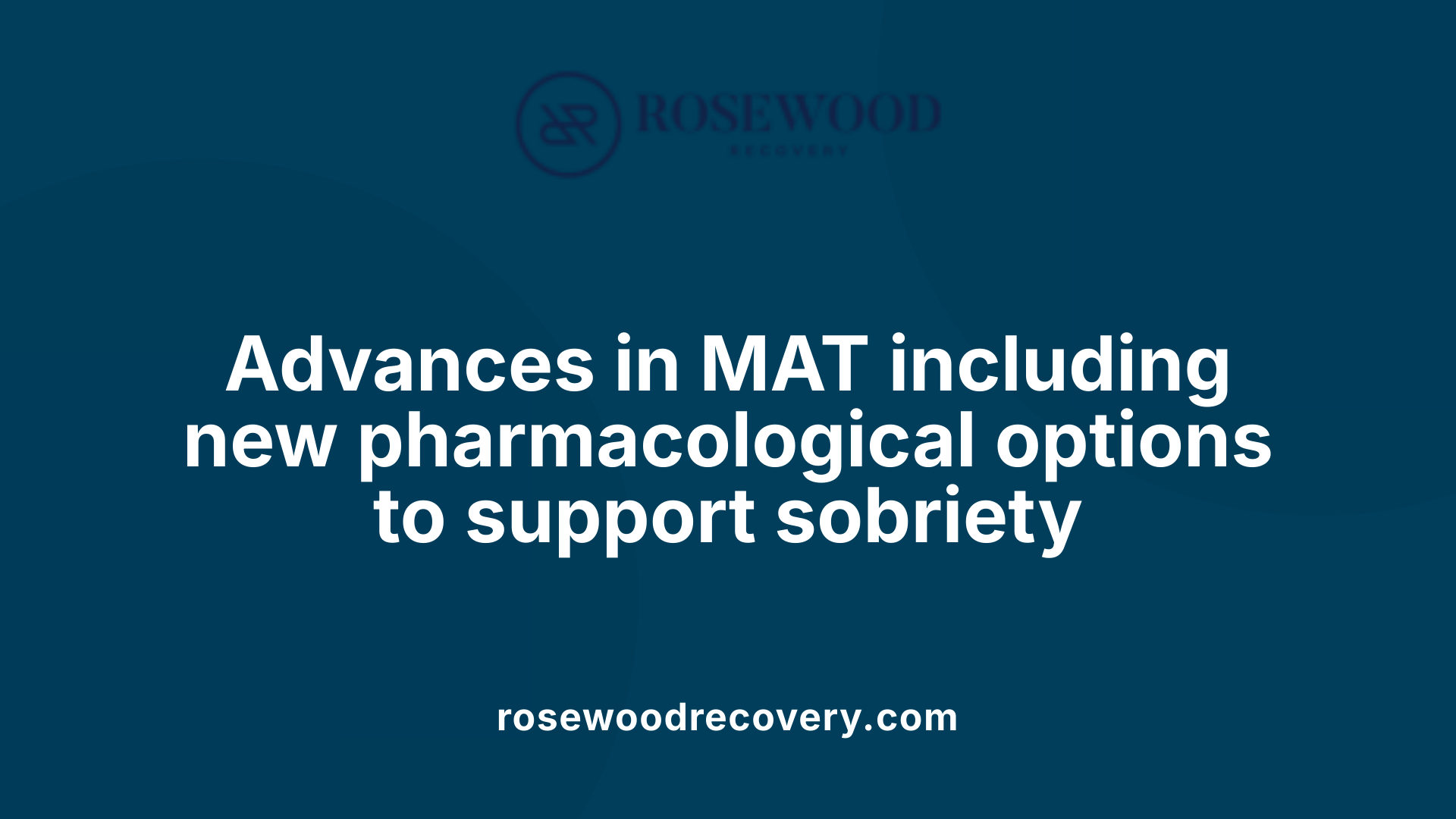
Medications to Treat Opioid and Alcohol Addiction
Medication-assisted treatment (MAT) is a cornerstone in managing opioid and alcohol addiction. Drugs such as methadone, buprenorphine, and naltrexone help reduce withdrawal symptoms and cravings, improving the chances of sustained recovery. These medications work by normalizing brain chemistry, blocking the euphoric effects of substances, or reducing harmful cravings.
Pharmacological Advances Like AEF0117 Reducing Cannabis Use
Recent pharmacological innovations bring new hope, such as AEF0117, which targets cannabis use by diminishing the psychoactive "high" without inducing withdrawal or harmful side effects. This kind of medication offers a promising approach to support those struggling with cannabis dependence by reducing the reinforcing effects of the drug.
Suvorexant for Treating Opioid Withdrawal-Related Insomnia
Insomnia is a persistent symptom during opioid withdrawal, hampering recovery. Suvorexant, a medication originally used for sleep disorders, has been found effective in alleviating withdrawal-related insomnia. This treatment helps improve sleep quality, a critical factor in the overall success of addiction recovery.
Role of Medications in Managing Mental Health Symptoms During Recovery
Medications are not only instrumental in treating addiction but also vital in addressing co-occurring mental health symptoms common in recovery. Through careful assessment, healthcare providers can prescribe drugs that alleviate anxiety, depression, and other mood disorders alongside addiction treatment, enhancing recovery outcomes.
These medication-assisted treatments and pharmacological advancements represent an integrated approach, addressing both substance use disorders and associated mental health conditions to support long-term recovery.
Developing Healthy Coping Skills to Manage Emotions and Prevent Relapse

Waiting to Respond and Mindfulness Techniques
In recovery, learning to wait before reacting to emotional triggers helps prevent impulsive decisions that could lead to relapse. Mindfulness practices—such as meditation and focused breathing—encourage awareness of thoughts and feelings without judgment, enabling individuals to gain control over cravings and stress.
Physical Activity and Exercise
Regular exercise plays a vital role in managing emotions during recovery. It promotes the release of endorphins, which improve mood and reduce anxiety. Activities like walking, yoga, or team sports also provide structure and a healthy outlet for energy.
Journaling and Social Connection
Writing in a journal allows individuals to process their thoughts and emotions, track progress, and recognize triggers. Coupling journaling with maintaining strong social connections—through family, friends, or support groups—offers emotional comfort, reduces isolation, and strengthens motivation.
Stress Reduction Practices Within Recovery
Incorporating stress reduction techniques such as deep breathing exercises, progressive muscle relaxation, and participation in mindfulness-based stress reduction programs aids in managing recovery challenges. These practices help lower cortisol levels and improve emotional regulation.
Impact of Coping Skills on Resilience and Self-Confidence
Developing and consistently using healthy coping skills increases resilience by enabling individuals to bounce back from setbacks. It builds self-confidence by demonstrating control over impulses and emotions. Together, these factors decrease the likelihood of relapse and enhance overall well-being during recovery.
Role of Support Groups and Community in Emotional Coping
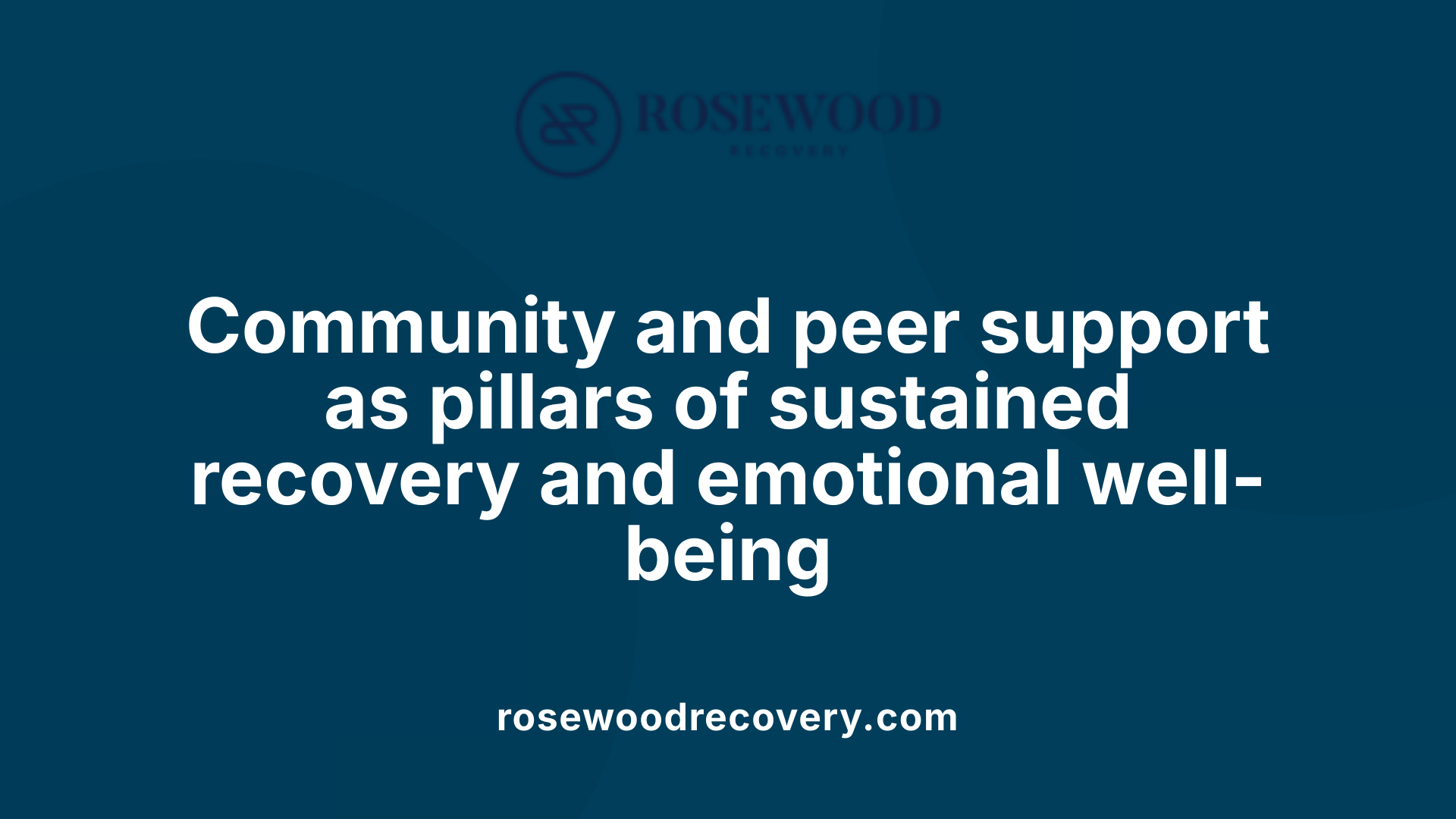
Why Are Peer Support Groups Critical in Addiction Recovery?
Peer support groups like Alcoholics Anonymous (AA), Narcotics Anonymous (NA), and SMART Recovery provide a vital platform for individuals recovering from substance use disorders. These groups offer a safe, non-judgmental space where members can share experiences, challenges, and successes. The shared journey fosters mutual understanding and encouragement, which helps reduce feelings of isolation frequently experienced in addiction.
How Do Social Support Networks and Family Involvement Enhance Recovery?
Family involvement and broader social support networks are foundational in addiction treatment. Family therapy and involvement broaden focus beyond the individual, addressing systemic and environmental factors contributing to substance use. Support from loved ones helps improve treatment adherence, emotional stability, and long-term recovery outcomes.
What Is Twelve-Step Facilitation and How Does It Contribute to Recovery?
Twelve-step facilitation encourages active participation in peer-based recovery groups like AA and NA. This approach emphasizes acceptance of addiction as a disease, surrender to a higher power, and ongoing community engagement. The structure of these programs bolsters accountability, provides spiritual and emotional support, and helps maintain sobriety through shared commitment.
How Does Shared Experience Reduce Isolation and Encourage Mutual Support?
Addiction often isolates individuals due to stigma and emotional numbness. Participating in community groups counters this by fostering connection through shared struggles and victories. Mutual encouragement within these communities helps members develop healthy coping mechanisms, build self-confidence, and sustain motivation during challenging phases of recovery.
The combined influence of peer groups, social networks, family involvement, and twelve-step programs builds a supportive environment that nurtures emotional coping and long-term resilience in individuals battling substance use disorders.
Relapse Prevention: Identifying Triggers and Reinforcing Coping Strategies
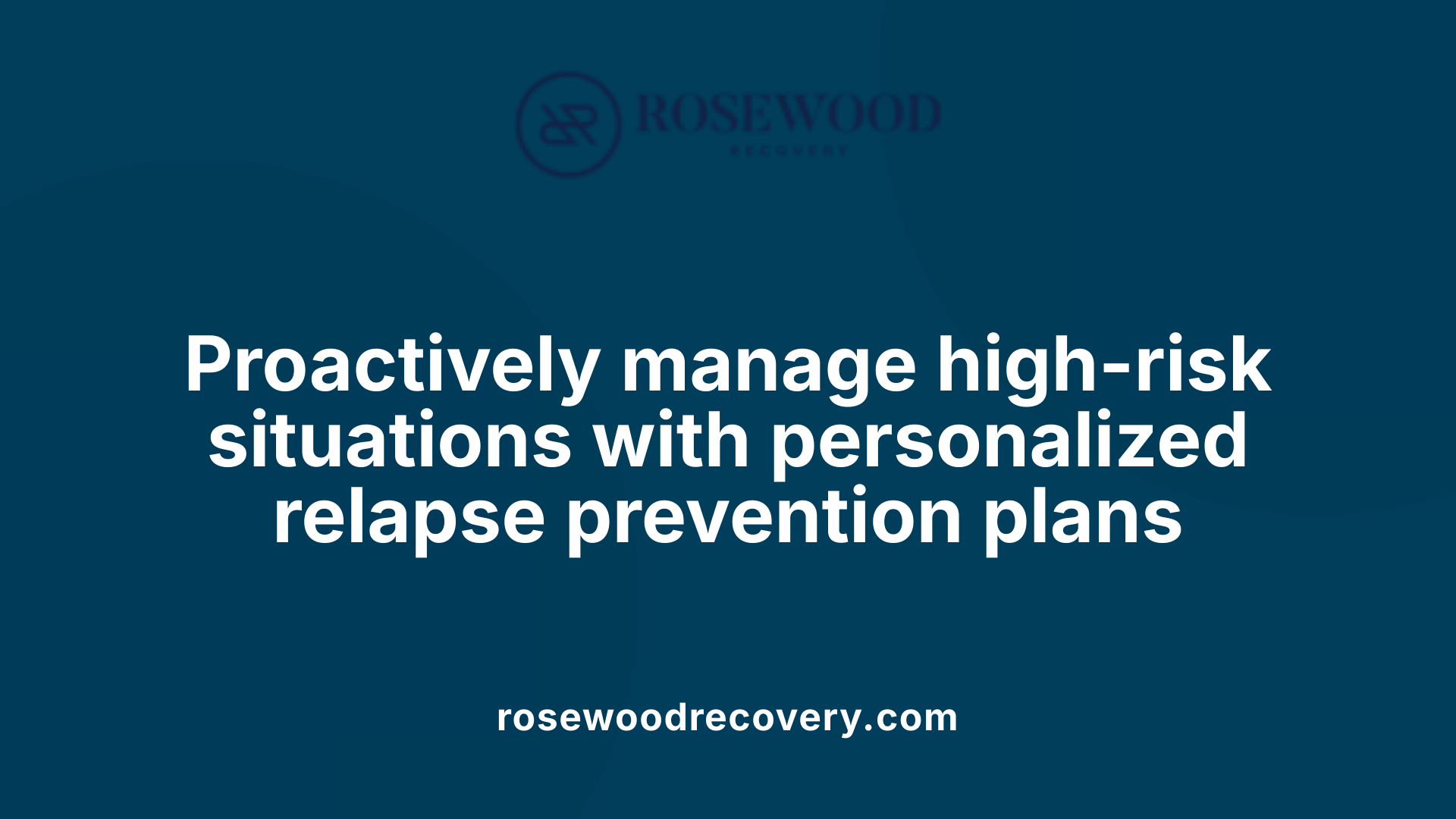
How Are Cognitive-Behavioral Strategies Used to Identify High-Risk Situations?
Cognitive-behavioral strategies are essential tools in relapse prevention. They help individuals recognize specific situations, emotions, or thoughts that might increase the risk of substance use relapse. By understanding these "triggers," individuals can anticipate challenges and prepare to manage them effectively.
Therapists guide clients through exercises that reveal patterns in behavior and thought processes linked to substance use. Techniques such as self-monitoring and role-playing allow individuals to develop awareness and take proactive steps to avoid or cope with risky environments.
How Can Self-Confidence and Emotional Regulation Skills Be Developed?
Building self-confidence empowers individuals to handle cravings and high-risk scenarios with resilience. Therapies like cognitive-behavioral therapy focus on reshaping negative thinking and promoting positive self-talk.
Emotional regulation skills are taught through approaches such as Dialectical Behavior Therapy (DBT), which helps manage intense emotions without reverting to substance use. Patients learn mindfulness, distress tolerance, and interpersonal effectiveness, all of which bolster their ability to respond thoughtfully rather than react impulsively.
What Is Involved in Developing a Relapse Prevention Plan?
A relapse prevention plan is a personalized strategy that includes:
- Identification of personal triggers and high-risk situations
- Coping techniques tailored to individual strengths and challenges
- Emergency contacts and support resources
- Behavioral goals and motivational reminders
This plan serves as a roadmap that individuals follow to maintain sobriety, providing clear actions for when they encounter difficulties.
How Is Continuous Monitoring and Adjustment of Coping Plans Achieved?
Relapse prevention requires ongoing commitment. Regular check-ins with counselors or support groups help monitor progress and update strategies. If certain methods lose effectiveness, adjustments are made to better fit the person’s evolving needs.
This dynamic process ensures coping skills remain relevant and effective against emerging stressors or new triggers, increasing the likelihood of sustained recovery.
The Importance of Early Screening and Integrated Care Models
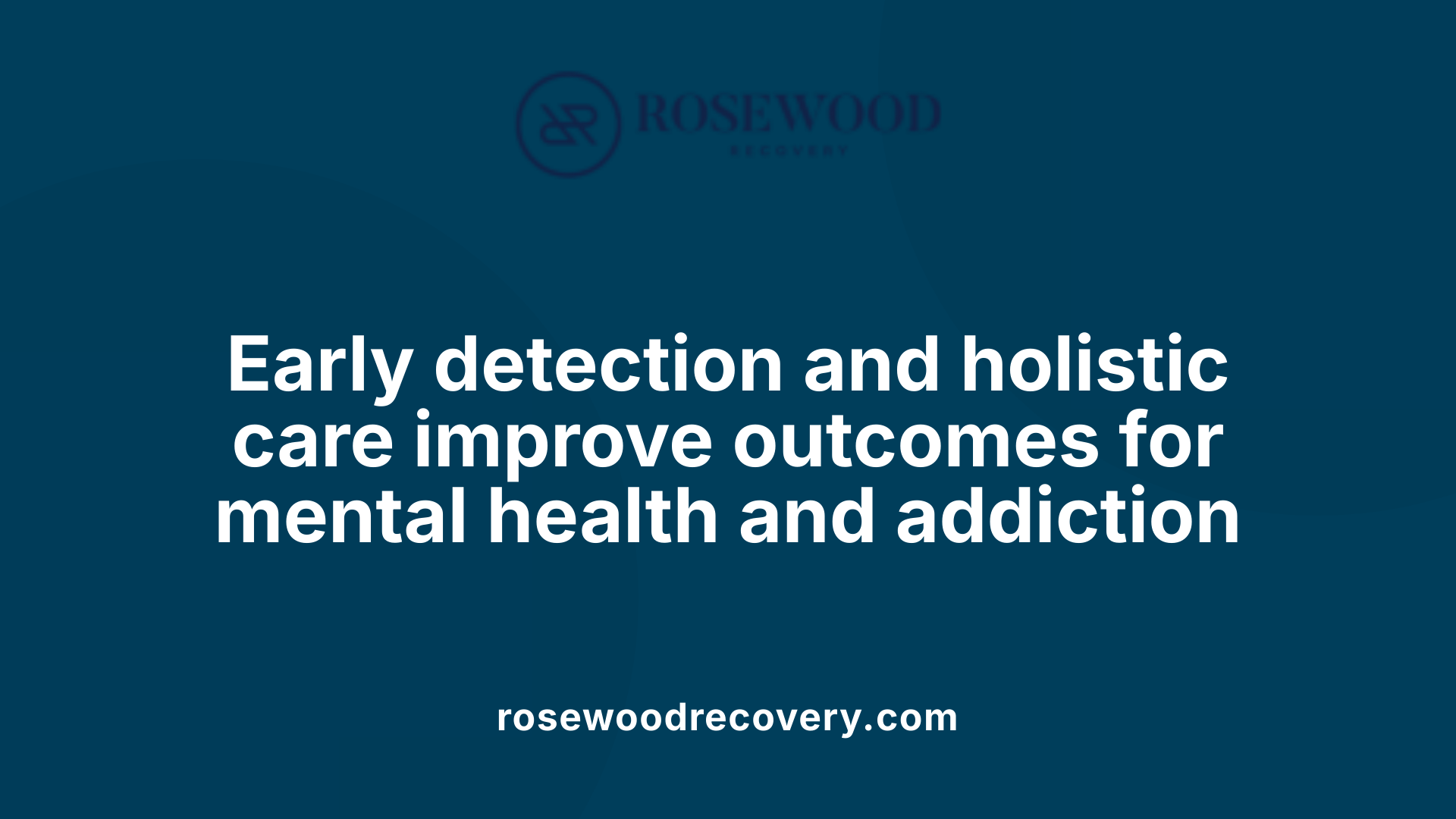
Why is screening for substance use important in mental health settings?
Screening for substance use in mental health care is essential because many individuals with substance use disorders (SUD) also suffer from co-occurring mental health conditions such as depression, anxiety, or bipolar disorder. Early screening allows healthcare providers to detect substance use behaviors early, often before they escalate into more severe problems. Incorporating substance use assessments alongside mental health evaluations helps prevent the progression of both disorders by enabling timely intervention.
How does integrated care combine mental health and substance use treatment?
Integrated care models provide a holistic approach that simultaneously addresses mental health and substance use disorders. These models combine behavioral therapies (like cognitive behavioral therapy and motivational interviewing), medication-assisted treatments, and care management to create comprehensive treatment plans. This coordinated care ensures that both conditions are managed together rather than in isolation, improving treatment outcomes and reducing the likelihood of relapse.
What are the benefits of early intervention in substance use disorders?
Early intervention can prevent substance use disorders from progressing to more severe stages. Identifying problematic use early helps reduce complications such as overdose, infections, and mental health deterioration. It also supports stabilization and recovery by connecting individuals to appropriate therapies, medication options, and support services sooner, enhancing long-term recovery prospects.
Why is collaboration among healthcare providers essential?
Effective treatment of co-occurring disorders relies on collaboration among primary care providers, mental health professionals, addiction specialists, and community resources. This teamwork ensures comprehensive assessments, accurate diagnoses, and unified treatment planning. Multidisciplinary collaboration enables personalized care that addresses the complex interactions between mental health issues and substance use, ultimately promoting better health outcomes.
Innovations in Recovery Support: Family Involvement and Inclusive Programs
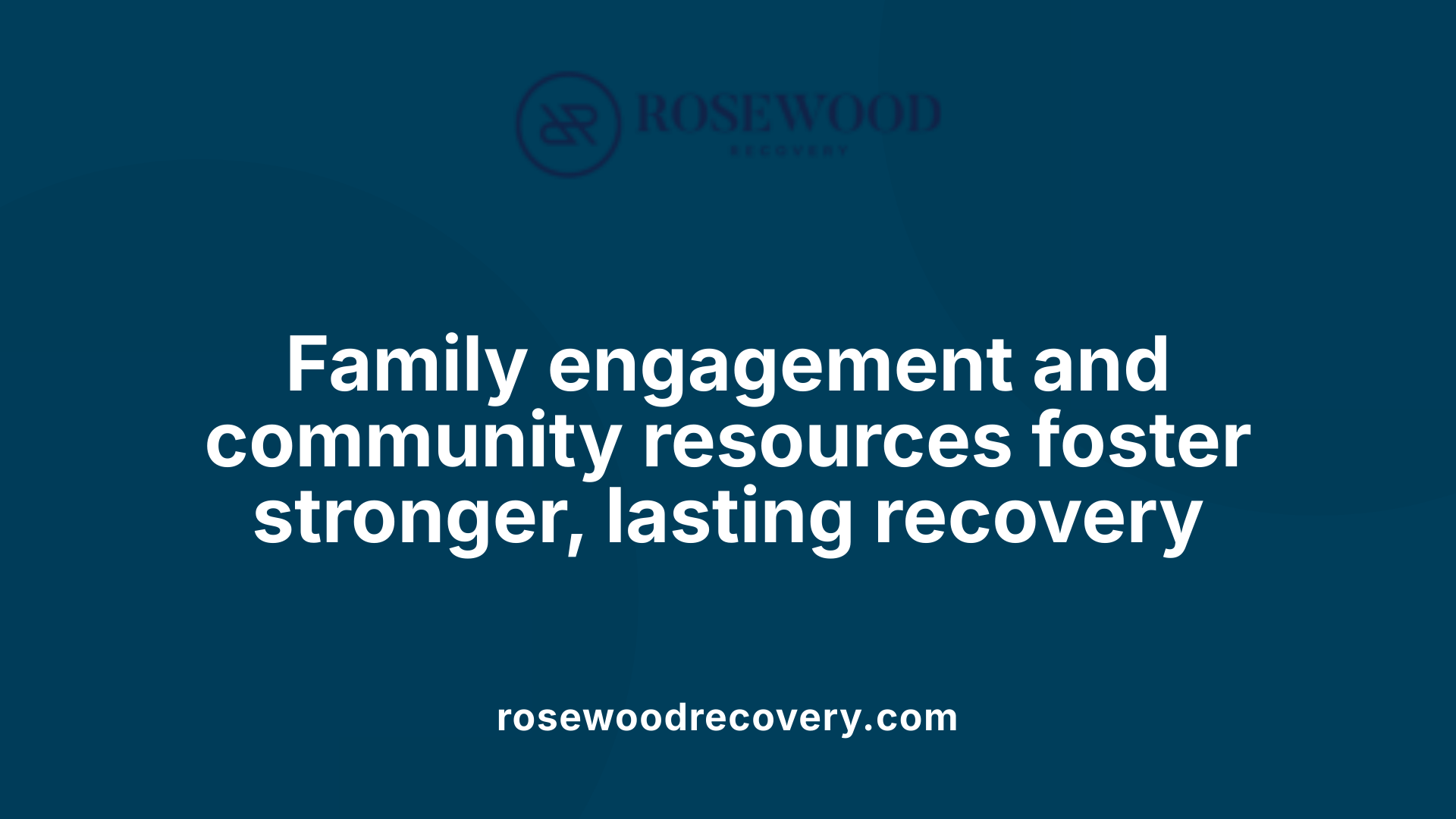
How do programs like Youth Opioid Recovery Support (YORS) involve family members in treatment?
Youth Opioid Recovery Support (YORS) represents a pioneering approach in addiction recovery that actively engages family members in a patient's treatment journey. This involvement helps improve adherence to treatment protocols and creates a stronger support network at home. Pilot studies show promising outcomes, with nearly half of patients avoiding relapse six months after participation. This family-inclusive model recognizes the crucial role loved ones play in motivating and sustaining recovery.
What role do probation officers and community partners play in inclusive recovery programs?
Recent innovations emphasize broadening recovery support beyond clinical settings. Probation officers and community partners are integrated into recovery programs to provide a more holistic support system. Their involvement facilitates coordinated care, accountability, and connection to vital community resources, enhancing the likelihood of successful outcomes for individuals navigating addiction recovery within the justice system or community at large.
How do resources like children's books address stigma and grief related to substance-related deaths?
Addressing the emotional aftermath of addiction-related deaths, resources such as the upcoming children's book All the Pieces aim to help young people understand and process grief stemming from drug overdose. These materials play a pivotal role in breaking down stigma, offering children and families compassionate ways to engage with loss and foster healing in affected communities.
What is the impact of family therapy on addiction treatment success?
Family therapy shifts the treatment focus from the individual to the entire familial system, addressing underlying relational and environmental factors contributing to addiction. Approaches like Multisystemic Therapy and Functional Family Therapy have shown effectiveness in improving family dynamics and supporting recovery. Including family members in therapy can enhance communication, reduce relapse rates, and build a resilient support network critical for long-term sobriety.
Building a Sustainable Emotional Coping Plan for the Future
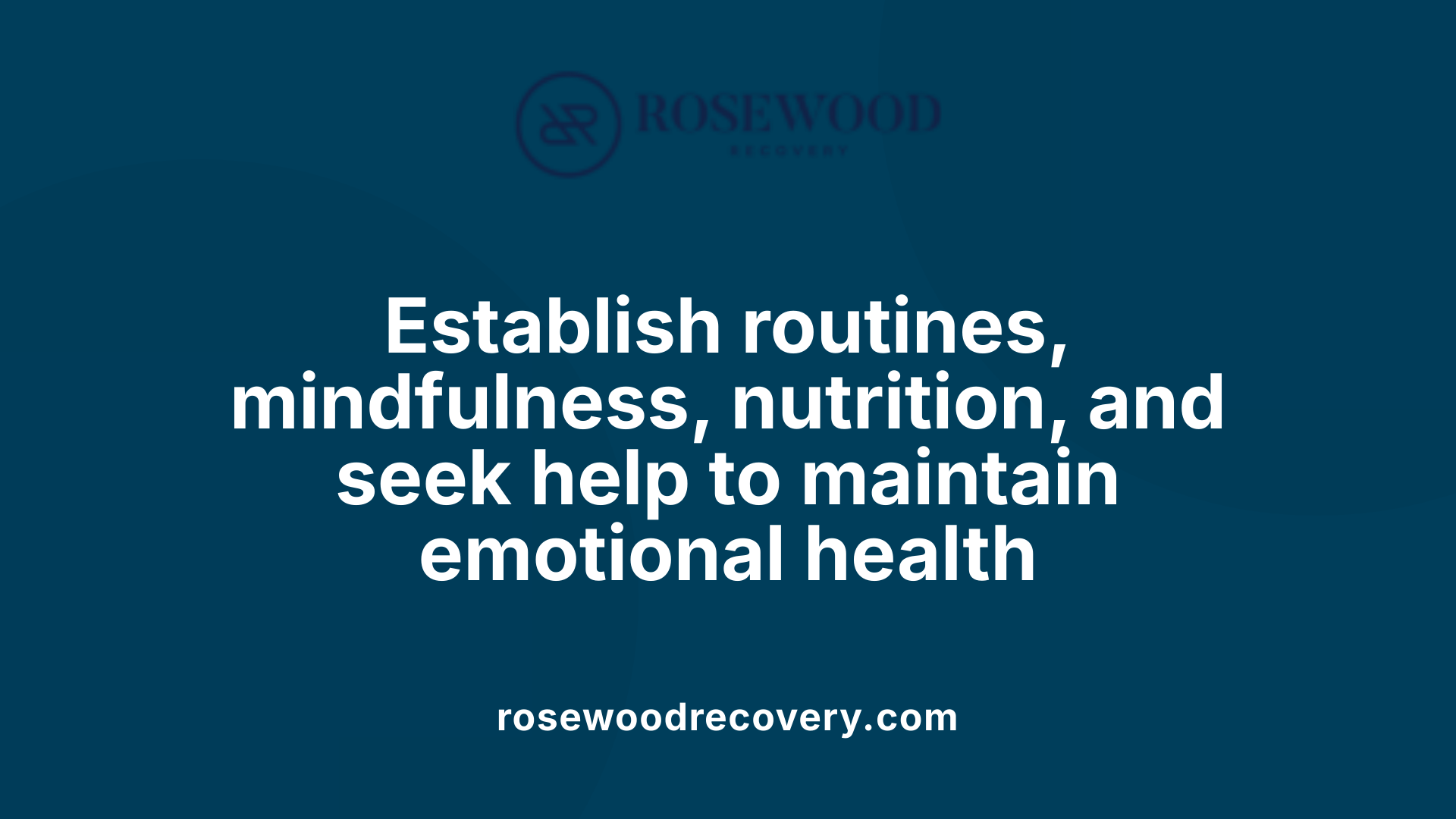
Daily Routine and Self-Care Importance
Establishing a consistent daily routine is fundamental for emotional stability and recovery. Regular schedules help individuals create predictability, reduce anxiety, and foster a sense of control. Incorporating self-care activities like hobbies or relaxation time reinforces emotional wellness and resilience.
Practices of Mindfulness, Meditation, and Setting Boundaries
Mindfulness and meditation are effective practices that promote present-moment awareness and reduce stress. They support emotional regulation and decrease impulsive reactions related to addiction and mental health struggles. Setting clear personal boundaries protects emotional energy, reduces external stressors, and supports healthier relationships.
Incorporating Nutrition, Sleep, and Physical Health
Good nutrition, adequate sleep, and regular physical activity are essential components of emotional coping. Balanced diets provide the brain with necessary nutrients, while quality sleep aids cognitive function and emotional regulation. Exercise releases endorphins, improving mood and reducing anxiety.
Recognizing When Professional Help Is Needed
Even with strong coping skills, some challenges require professional intervention. Signs include persistent depression, overwhelming stress, or relapse. Seeking support from mental health professionals, counselors, or medical providers ensures timely, effective care.
Balancing Psychological, Social, and Spiritual Coping Mechanisms
A well-rounded coping plan includes psychological strategies (like cognitive therapy), social support from family and peers, and spiritual experiences or practices that foster inner strength. This balance promotes holistic healing, motivation, and sustained recovery.
Looking Ahead: Strengthening Emotional Resilience
Emotional coping plans are essential tools for anyone journeying through recovery from substance use and mental health challenges. By combining comprehensive treatment services, holistic therapeutic approaches, healthy coping skills, and supportive community resources, individuals can build resilience and confidence to face future stresses and temptations. Continuous engagement with professional care providers and support networks further fortifies these plans, ensuring adaptability and sustainability. With growing federal support and innovative programs, the path to recovery holds promise for improved emotional well-being and healthier lives ahead.
References
- Home | SAMHSA - Substance Abuse and Mental Health ...
- Finding Help for Co-Occurring Substance Use and Mental ...
- Substance Use Disorder (SUD): Symptoms & Treatment
- Psychologists are innovating to tackle substance use by ...
- Addiction Treatment Methods | Evidence-Based Practices
- Coping Skills Therapy for Addiction in Illinois
- Five Psychological Effects of Drug Addiction




